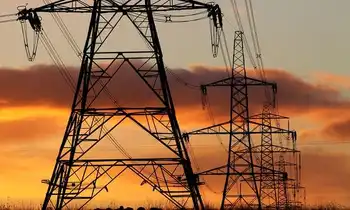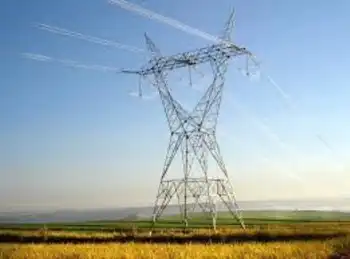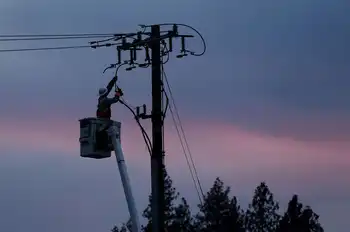Duke Energy CEO discourages coal-fired generation
By Charlotte Observer
High Voltage Maintenance Training Online
Our customized live online or in‑person group training can be delivered to your staff at your location.

- Live Online
- 12 hours Instructor-led
- Group Training Available
Opponents of Duke's proposal to build two 800-megawatt coal- fired units at its Cliffside facility west of Charlotte say Rogers is contradicting himself.
The Charlotte CEO said the plan to reduce carbon dioxide emissions, presented to congressional leaders, is about encouraging development of advanced technology to reduce output of the gas and not about opposing needed power projects.
Rogers is part of an unlikely cadre of corporate leaders and environmentalists called the U.S. Climate Action Partnership. The group has met in secret for a year creating a set of principles to address global warming. It hopes to influence coming carbon dioxide regulation, which Democratic leaders in Congress say is a top legislative priority.
Many, including Rogers, believe carbon dioxide emissions are a cause of global warming, which scientists fear could melt polar ice and cause massive flooding, among other problems. Coal-fired power plants, which account for 52 percent of the electricity produced by Duke in the Carolinas, are among the largest producers of the gas.
The group said its set of principles includes one to "strongly" discourages building plants that "cannot easily capture (carbon dioxide) emissions." The Cliffside units would emit carbon dioxide and are not the type that would allow the gas to be easily captured. Methods of stripping carbon dioxide from the emissions of traditional coal-fired plants, like Cliffside, are more than a decade away, Rogers said.
Rogers testified last week before the N.C. Utilities Commission about the need for the Cliffside project. Projected costs have increased by 50 percent, and the commission must decide if Cliffside is a good value for consumers who eventually cover the cost through rate increases.
The opposition believes Duke should be investing in energy efficiency programs to cut electricity demand. The commission plans a decision by Feb. 28.
Rogers, who supports some form of carbon regulation, said half of the nation's electricity comes from coal. Using the fossil fuel, which is plentiful in the United States, also reduces our dependence on foreign energy sources, he argues.
"We have to figure out how to use coal with a clean footprint," he said.
Rogers and Duke point out that Cliffside has land set aside to hold potential pollution control facilities that might be developed in the future.
Opponents of Cliffside, which straddles the border of Cleveland and Rutherford counties, say Rogers' work to reduce emissions and Duke's plan to build the units don't jibe.
"They're blatantly inconsistent with each other," said Gudrun Thompson, a lawyer for the Southern Environmental Law Center, which opposes the project.
Stephen Smith, executive director of the Southern Alliance for Clean Energy, has said the push for carbon regulation seems disingenuous. If Duke leaders were serious, they would not be building a coal-fired plant, he said.
Rogers pointed out the federal government already awarded Duke $125 million in clean-coal tax credits for the plant, he said. The new Cliffside units would be more efficient and cleaner than other coal-fired plants in its fleet, the company said.
The project was one of only two traditional coal projects chosen by the U.S. Department of Energy for the credits. Duke also received $133.5 million in credits for an Indiana power project that could capture the carbon dioxide from its emissions. That project's cost estimate: up to $2.1 billion.
Corporate and environmental leaders will unveil their set of principles today for reversing global warming by limiting carbon dioxide emissions.
They want to guide debate in Congress over probable carbon dioxide regulations. The first-ever regulations likely would affect Duke and other large companies that emit the greenhouse gas, including General Electric, BP America and Alcoa, which are part of the group. Environmental Defense and the Pew Center on Global Climate Change are among the environmental groups.
The group plans a news conference at 11:30 a.m. today to detail the set of principles, which includes as its cornerstone a national "cap-and-trade" system.
The system would set a national cap on emissions. It would allow companies that pollute less to sell credits, or the right to pollute, to companies that pollute more. The idea is to offer a financial incentive to reduce emissions. As the national cap is slowly lowered, the credits become rarer and more expensive.











